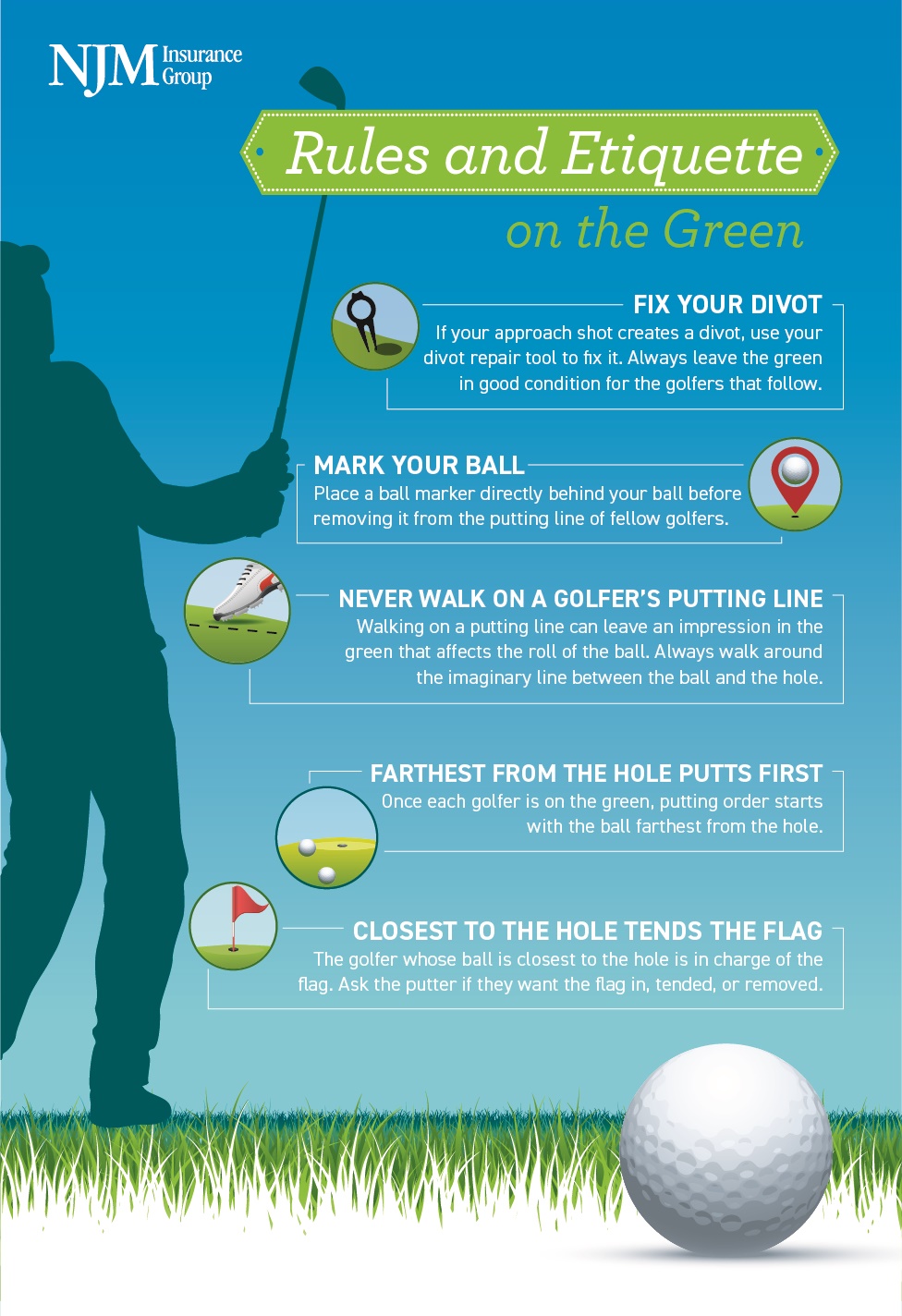Which of these rules of etiquette apply to conduct within the boat?
Whenever I’m playing with strangers I always say ready golf on the 1st hole to make sure the group plays ready golf vs. honor’s golf https://coldcomfortseattle.com/. The only time I’d recommend playing honors golf is when someone makes a birdie, eagle or you are in a competitive event.
Showing up early will make it a better experience and most likely a better round for everyone. And you’re more likely to avoid injury too. Aim to arrive at least 20-30 minutes before your scheduled tee time.
Speaking of talking on the course, another piece of golf etiquette for dummies is to only talk to your golf ball. There is nothing worse than someone saying talking to your golf shot. I hate hearing other golfers say things like “Stay out of the water” or even worse “Great putt” about your shot before it actually went in.
Rules of golf etiquette
When approaching the putting green, respect the golfer’s space and step to the side if you need to observe their line. Similarly, standing behind the hole is also distracting, so avoid that position. Instead, stand behind other golfers or far enough away that you won’t be in anyone’s direct line of sight.
The biggest faux pas in golf etiquette is talking while others are hitting. This can annoy fellow golfers and create an uncomfortable atmosphere on the course. Whenever someone stands over the ball, all other activities should halt so they can focus and hit the shot with as little distraction as possible. The smallest sound, like a twig breaking or the faintest whisper, can ruin players’ concentration and mess up their practice swings.
I blame scramble tournaments for the loss of this etiquette practice. Standing on a player’s target line, no matter how far back or how far behind the hole you are, is frowned upon. Sure, it’s not officially in the rulebook—Rule 10 only states your caddie is not allowed to stand there—but it should be observed. However, many golfers play in scramble tournaments, and gathering together to assess and watch every shot has become common practice.
If you’re brand new to the game and you happen to make some of these mistakes, don’t worry. Learn from them and move on. But the biggest ones to avoid are talking in someone’s swing, walking in their line, and not yelling fore towards another group.
Nick is the founder of GolfSpan and an avid golfer. He’s not quite a pro but has over 15 years of experience playing and coaching golfers worldwide. His mission is to bring the golfing community a better experience when it comes to choosing the right golf gear and finding the right setup for your game.

10 rules of online etiquette
A passing comment spoken in class can be forgotten a few minutes later, but what you share in an online classroom is part of a permanent digital record. “Whether or not privacy settings are in place, the internet has a tendency to house things forever, and what you say privately can easily become public,” advises etiquette expert Devoreaux Walton.
If you have an in-joke to share, send it in a private message. Additionally, don’t post an obscure comment to your Facebook, a forum, or an Instagram story, as this can leave others feeling as if they are excluded from whatever it is you are talking about.
The obvious exception to this netiquette rule is if you “friend” someone while you are getting along and later have a disagreement. It is perfectly acceptable to unfriend someone if the relationship is beyond repair. Just don’t torture them (or yourself) with on-again-off-again connecting.
Sarcasm has been the source of plenty of misguided arguments online, as it can be incredibly difficult to understand the commenter’s intent. What may seem like an obvious joke to you could come across as off-putting or rude to those who don’t know you personally. As a rule of thumb, it’s best to avoid sarcasm altogether in an online classroom. Instead, lean toward being polite and direct in the way you communicate to avoid these issues.
The same guideline applies when having phone conversations in public places. Any time you are talking out loud, others can overhear you. This provides them access to your private information, so don’t overshare.
If you’re wondering what the rules of netiquette are or what netiquette rules students should follow, this guide outlines everything you need to know, including practical examples and digital communication hacks.
Betty Wainstock
Sócia-diretora da Ideia Consumer Insights. Pós-doutorado em Comunicação e Cultura pela UFRJ, PHD em Psicologia pela PUC. Temas: Tecnologias, Comunicação e Subjetividade. Graduada em Psicologia pela UFRJ. Especializada em Planejamento de Estudos de Mercado e Geração de Insights de Comunicação.

